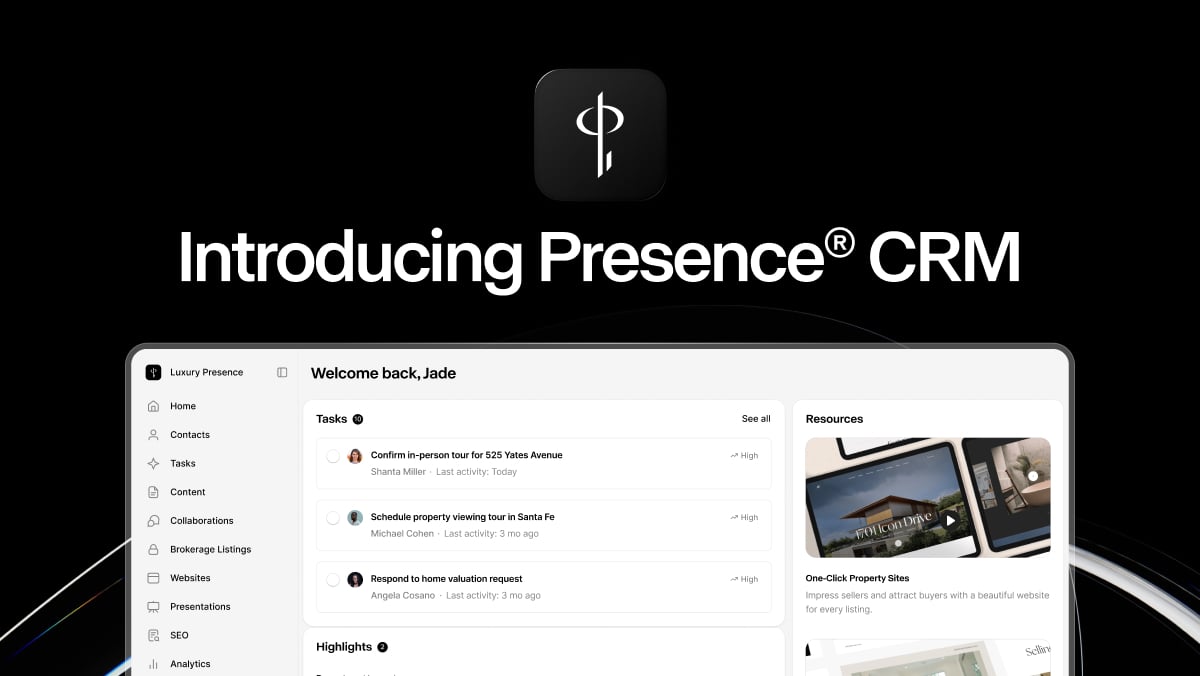
A high-impact online presence represents more than a digital brochure, building trust, capturing leads, and showcasing your brand’s value. Here are the top five real estate website builders heading into 2026, compared feature by feature, so you can choose the platform that fits your goals.
Find It Fast
The 4 best real estate website builders
Each company creates mobile-friendly, IDX-enabled websites specifically for real estate. But their strengths vary. Some prioritize aesthetics, while others lean into CRM tools or transaction management.
Best for back-office management: BoldTrail
Formerly kvCORE, BoldTrail caters to brokerages ready to consolidate operations under one roof. It’s a tightly packaged corporate solution that handles everything from IDX-enabled websites to back-office transaction management. It’s built to fuel a centralized pipeline and consolidate every part of your tech stack.
The platform’s websites are functional front-ends for lead acquisition, integrating MLS data and behavioral tracking. A built-in CRM uses generative AI to send alerts that help agents prioritize follow-up and manage campaigns.
To see how BoldTrail translates real estate brands to the digital realm, check out the site their team built for Meybohm REALTORS, a brokerage in Augusta, Georgia:
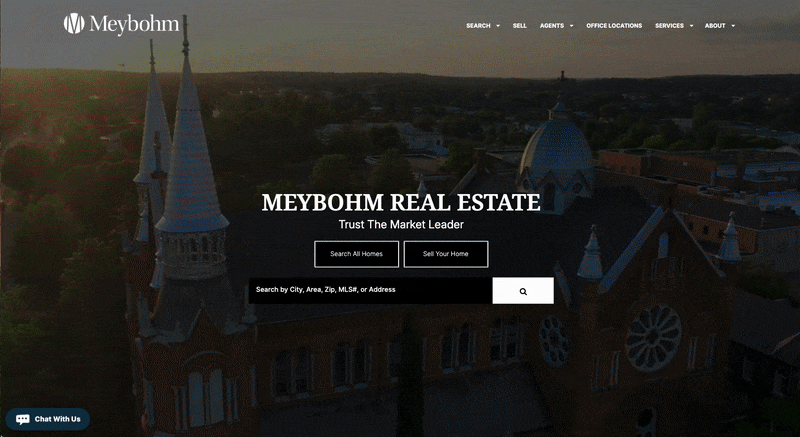
Pros
- Combines CRM, website, lead generation, and back-office control
- Open house sign-in app helps agents generate leads
Cons
- Highly templated websites and dated designs limit customization, making brand differentiation challenging
- Data export rules favor brokerages, so contact lists may not transfer if you leave
- Lacks direct integrations with popular third-party CRMs such as Follow Up Boss
- Interface can feel complex for individuals and small teams; support prioritizes enterprise clients
- Some users note slower organic search performance and spam filters mislabeling the CRM’s email messages
- Bundled investment structured for a brokerage budget
Best for WordPress users: Agent Image
Agent Image builds websites on the popular WordPress platform, offering both ready-made and custom design options. The open-source structure gives you flexibility to add plugins and third-party tools, though it can also mean more hands-on maintenance and security oversight (see FAQ for more).
Agent Image lets you connect your preferred CRM and lead systems rather than locking you into a built-in toolset. It’s a strong fit for agents who already have their operations dialed in and need a design partner to elevate their digital storefront.
To get an idea of what an Agent Image site looks like in action, check out this example featuring Jarah Chesnut in Panama City, Florida:
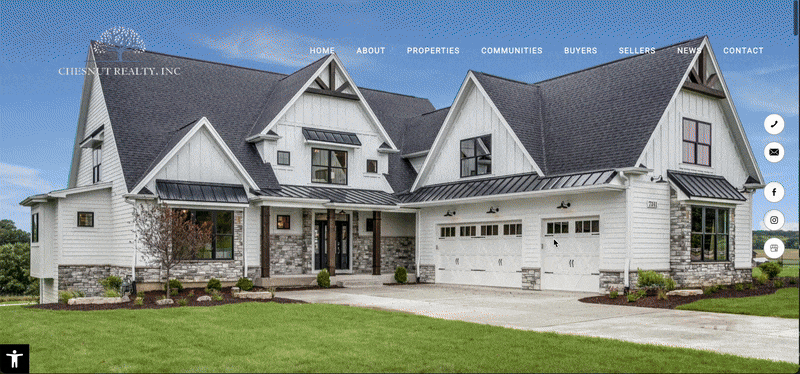
Pros
- Allows external widgets and third-party plugins, opening up alternatives to native tools
- Custom design option provides a polished look
Cons
- No built-in AI, automation tools, or mobile app
- Reliance on third-party plugins increases your maintenance and security responsibilities
- Post-launch support is mixed; some clients experience slower communication after the initial build
- Additional charges may apply for CRM setup or SEO add-ons, with costs rising quickly once optional features are added
Best for teams that need a CRM: Lofty
Lofty (formerly Chime) offers teams a single, connected platform for their IDX website, CRM, marketing, and transactions. The platform focuses on paid lead generation, supported by pay-per-click campaigns, social ads, and even direct mail. As such, SEO requires a more hands-on approach, with Lofty providing basic metadata tips for you to implement.
Its drag-and-drop editor makes site creation simple, though customization is more limited than other design-first platforms on this list. However, you can use Lofty’s WordPress plugin to layer its CRM onto an existing site. To see a real-world example of a Lofty website, check out Colorado broker Adam Gillespie’s online presence:
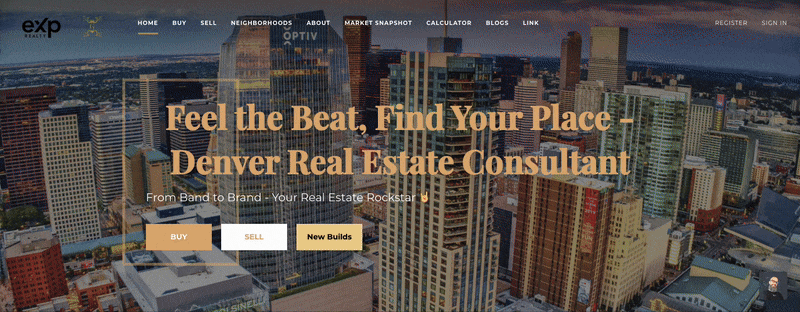
Pros
- Mobile app connects clients to agent websites
- Automatically creates single-property pages for each new MLS listing
Cons
- System favors built-in CRM and lead gen products; may require ad budget to see new business traction
- Highly templated websites with minimal SEO support
- AI tools focus on basic automation and copywriting, not deeper brand alignment
- Support flows primarily through AI bots and Facebook group, with many reviewers citing slowness and lengthy wait time
Best for solo agents on a budget: Real Geeks
Real Geeks has long offered a reliable, budget-conscious option to agents who want a straightforward IDX-enabled website and built-in CRM. Its proprietary SaaS platform delivers conversion-focused sites that help agents new to digital marketing start generating leads quickly.
However, industry reviews suggest the company has not kept up with recent technological and design advances. To get an idea of how its templates look in the real world, take a look at this Real Geeks site, created for Alina Schwartz of One Sotheby’s International Realty:
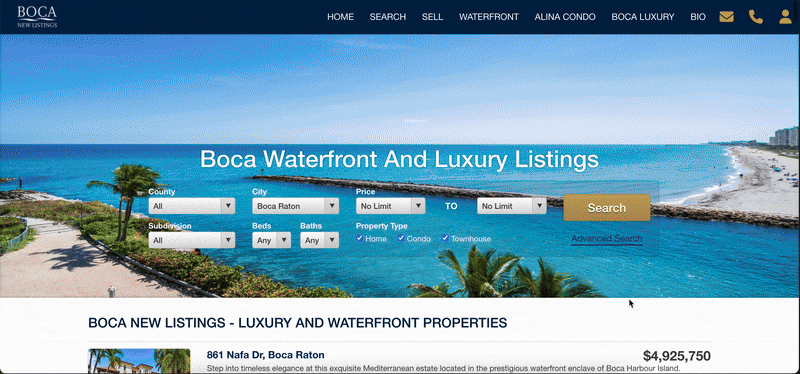
Pros
- Includes mobile app and unlimited text and email campaigns
- Higher-tier plans include a lead guarantee, with credits for future services if targets aren’t met (subject to restrictions)
Cons
- Limited design customization results in lack of brand differentiation
- Built-in CRM is relatively manual, lacks complexity and customization needed for sophisticated workflows
- Older web framework can slow performance, cause visibility issues
- Users report SEO challenges, with newer visibility strategies carrying spam risks
- Limited customer support, especially on lower-priced plans
Real estate website builder FAQ
-
Should I choose a WordPress site or a proprietary all-in-one platform?
-
What is IDX, and do I really need it?
-
Can I DIY my real estate website?
Key Takeaways
- The best real estate website builder depends on your business model. Some platforms prioritize all-in-one back-office management for brokerages, others offer custom design flexibility, and some focus on CRM integration or budget-friendly simplicity for solo agents.
- IDX integration is non-negotiable. Any professional real estate website should automatically display local MLS listings to keep your site current, searchable, and generating leads.
- Weigh the trade-offs between open-source platforms, which offer flexibility but require more maintenance, and proprietary SaaS platforms, which handle updates, security, and performance for you.
Your website is often the first impression a potential client has of your brand. Invest in a platform that reflects the level of service you deliver in person.


